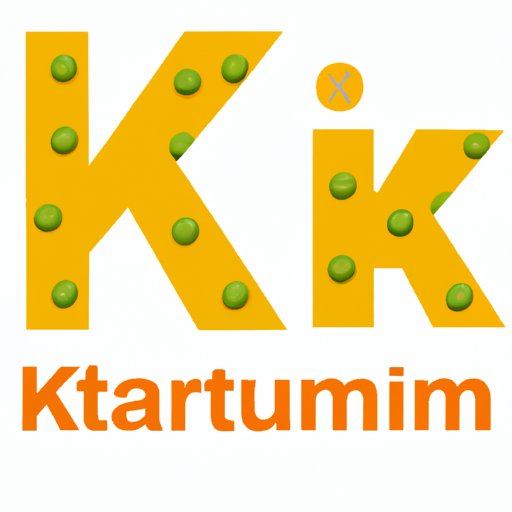The Importance of Vitamin K for a Healthier You
Vitamins are essential nutrients that our bodies require to function properly. Each vitamin plays a different role in keeping us healthy and helps our bodies produce energy from food. Vitamin K is one such vitamin that plays an important role in keeping our bodies functioning at optimal levels. In this article, we’ll explore what vitamin K does for the body and why it is essential for our overall health and wellbeing.
The Role of Vitamin K in Blood Clotting and Bone Health: A Comprehensive Guide
Vitamin K is an important nutrient that is well-known for its role in blood clotting. There are two main forms of vitamin K: K1 and K2. K1 is found in leafy greens, while K2 is found in fermented foods and animal products. Both forms are important for maintaining good health.
Blood clotting is a vital process in our bodies that prevents excessive bleeding when an injury occurs. Vitamin K is necessary for the production of clotting factors that help blood to clot properly. Without vitamin K, our bodies would be unable to form clots, which could lead to excessive bleeding and other serious health concerns.
Vitamin K is also important for bone health. It helps in the process of bone mineralization by regulating calcium levels in our bones. Vitamin K deficiency has been linked to an increased risk of osteoporosis, a condition in which bones become porous and brittle, making them more susceptible to fractures.
Exploring the Benefits of Vitamin K for Optimal Health and Well-being
Vitamin K has many benefits for overall health and well-being. One of the main benefits is its role in reducing inflammation in the body. Chronic inflammation has been linked to numerous health concerns, including cancer, heart disease, and autoimmune disorders. Vitamin K helps to reduce inflammation by regulating the production of certain proteins that are involved in the process.
Research has also shown that vitamin K may play a role in preventing certain diseases. Studies have found that high levels of vitamin K intake are associated with a reduced risk of cardiovascular disease, certain cancers, and Alzheimer’s disease.
Vitamin K has also been shown to have a positive impact on skin health. It helps to regulate blood flow and can improve the appearance of dark circles and under-eye bags. Vitamin K has also been shown to help reduce the appearance of fine lines and wrinkles.
Why Vitamin K is Essential for Heart Health and Disease Prevention
Vitamin K is essential for maintaining good heart health. It helps to prevent the buildup of calcium in the arteries, a condition known as arterial calcification, which can lead to heart disease. Research has shown that people with higher levels of vitamin K intake have a lower risk of developing heart disease and dying from heart-related causes.
Furthermore, vitamin K has been shown to help regulate blood sugar levels in people with type 2 diabetes. This can help to reduce the risk of developing complications associated with the disease, such as cardiovascular disease and kidney failure.
The Connection Between Vitamin K and Brain Function: What We Know So Far
Emerging research suggests that vitamin K may play a role in brain health. Studies have shown that people with a higher intake of vitamin K have better cognitive function and a lower risk of developing dementia.
More research is needed in this area to fully understand the mechanisms behind vitamin K’s potential cognitive benefits, but early studies are promising.
Vitamin K Deficiency: Symptoms, Causes, and How to Ensure You’re Getting Enough
Vitamin K deficiency is relatively rare, but it can occur in people with certain health conditions. Symptoms of vitamin K deficiency can include easy bruising and bleeding, nosebleeds, and bleeding gums. People who take certain medications, such as blood thinners, may be at a higher risk of vitamin K deficiency.
To ensure that you’re getting enough vitamin K in your diet, it is important to eat foods that are rich in this nutrient. Leafy greens, such as kale, spinach, and broccoli, are good sources of vitamin K1, while fermented foods, such as sauerkraut and natto, are good sources of vitamin K2. If you are unable to get enough vitamin K from your diet, supplements are also available.
Conclusion
Vitamin K is an essential nutrient that plays an important role in maintaining overall health and wellbeing. Its role in blood clotting and bone health is well-known, but emerging research suggests that vitamin K may also play a role in preventing certain diseases and improving brain function. Ensuring that you’re getting enough vitamin K in your diet is easy with a balanced diet that includes plenty of leafy greens and fermented foods.
